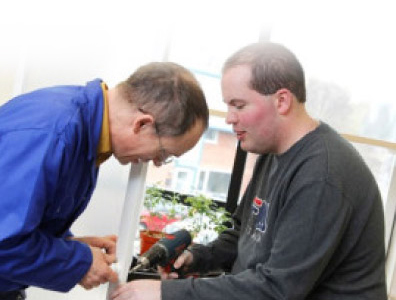Dealing with challenging behaviour
The term “challenging” comes from when a person’s behaviour puts them or those around them, such as carers, at risk or can lead to poorer qualities of life. It can also mean having an impact on their ability to join in with everyday activities. It also includes aggression, self-harm, destructiveness and disruptiveness.
If communication is a problem, a person can become very frustrated. This is because communication is the main way in which we interact with one another, whether this is expressing our feelings or sharing likes and dislikes. This frustration can result in challenging behaviour and if the behaviour ends in an outcome, then they may repeat this over and over.
How can I help?
Carers would need to try and understand why the person you look after is behaving this way. Some examples could include anxiety, boredom, frightened and more. If the signs are recognisable in the early moments, then you may be able to prevent the behavioural outburst. One example includes the person you care for being nervous or anxious within a large group of people. They could become agitated, therefore the best thing to do would be to arrange for them to be in a smaller group.
Often, distractions can focus someone’s energy elsewhere and prevent them from displaying their challenging behaviour.
They may be behaving in a challenging way to get your attention, one of the best ways to react is to not responding directly to their behaviour. But do not ignore them completely. If their behaviour becomes a risk, meaning themselves or someone is at risk, then you would need to intervene as calm as possible.
Would you like to read more information on challenging behaviour? Check out NHS Choices article on dealing with challenging behaviour.
If you believe the adult you care for could benefit from being in a fun, practical learning environment that’s been specifically created and backed by over 30 years of experience in helping adults who learn differently and have behaviours that challenge then call us on 0121 308 6555.




